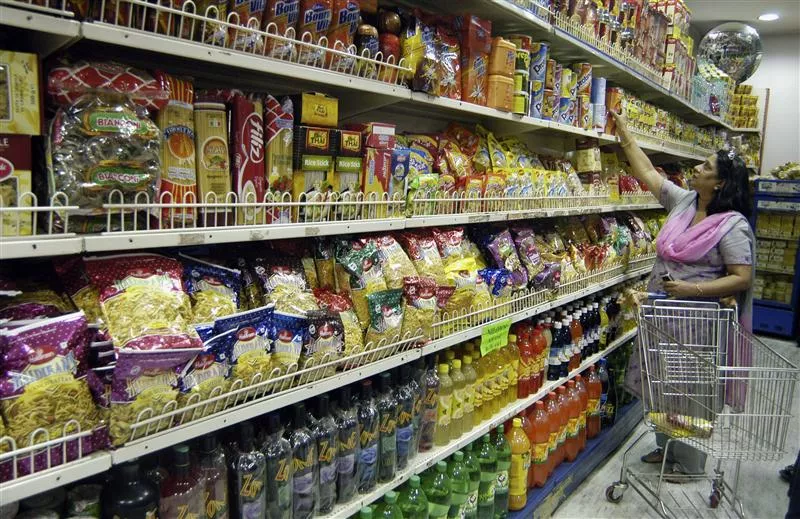Civil, military admin join hands in fight against price hike
Vehicle owners are paying hefty fines after authority fails to issue number plates or smart cards
LAHORE: In a bid to curb artificial inflation and prevalent hoarding practices, military authorities have decided to collaborate with provincial departments and district administrations to keep track of prices of food and essentials amid lockdown.As per plan, intelligence along with the civil administration has been tasked with collecting details of raw material reserves, food items, livestock, medicines used for treating coronavirus disease as well as details of medicine distributors, flour mill owners, dealers and wholesalers across vegetable, fruit and grain markets.
Senior officers of the civil management have been directed to immediately notify military authorities concerned, in the event of facing any impediments in the manufacturing and supply of food and medical items.
Moreover, to leave no stone unturned, civil and military authorities are also jointly monitoring all pertaining matters on a daily basis. As per details, Chief of Army Staff (COAS) General Qamar Javed Bajwa has particularly directed all core commanders to assure uninterrupted manufacturing and supply of food and medical items, during the lockdown period.
The COAS has also issued orders to fully support the civil administration in curbing hoarding practices and artificial inflation by compiling stock positions of all essential items.
Following which, the military authorities in cooperation with the civil administration and the intelligence, have begun collecting details of mill owners, distributors, importers and wholesalers. On the other hand, Information pertaining to stocks of wheat, rice, lentils, cooking oil, banaspati ghee, mutton, beef, chicken, petrol and diesel are being collected on district levels via pro forma.
Furthermore, details of stocks of raw materials used in the manufacturing of Azmox and Avil tablets along with chloroquine medicines are also being collected.
However, sources reveal that thus far, maintaining food supply and availability have remained the primary focus of the daily meetings being convened between the civil and military authorities on the matter. This in turn has increased the pressure on officers employed in the food, agriculture and health industries.
“Whereas, prices of fruit and vegetable items have been on a decrease due ample availability and not enough buyers during the days of lockdown,” shared a market source.
“For instance, the price of tomatoes has gone down by Rs 10 per kilogram as people have been more incline towards consuming rice and lentils these days, which has created a dearth of buyers in fruit and vegetable markets,” he added.
Meanwhile, the food department upon orders of Chief Minister Punjab, for the second time in the last 24 hours, has started preparing for an increase in the wheat quota for flour mills across eight cities, starting Friday.
The Central Chairperson Flour Mills Association Asim Raza, Punjab Chairperson Abdul Rauf Mukhtar and Vice Chairperson Mian Riaz, in a meeting with Chief Minister Punjab had requested to uniformly increase 5 bags per body of wheat quota for all flour mills in the province, owing to the unusual increase in the demand for flour.
It is expected that new wheat will begin arriving from first or second of April. Hence an increase of wheat quota of 4,200 tonnes on a daily basis for a few days will leave only 22,000 tonnes of additional wheat to be provided by the food department, which will help normalise the availability of wheat.
In addition to that, the food secretary has also formulated a five-member team for monitoring the availability and prices wheat along with arrangements of its procurement.
According to which, Deputy Secretary Food Technical Anjum Sardar will monitor DG Khan and Bahawalpur divisions while Deputy Food Secretary Sheikh Rauf will oversee Faislabad and Sargodha divisions.
Similarly, Deputy Secretary Admin Ameer Muhammad Barmani will monitor Sahiwal and Lahore divisions, Deputy Director Sakman Ali Pandi will monitor Gujranwala division and the District Food Controller Sufyan Awan will oversee arrangements in the Multan division.
“However, as per orders issued by the food secretary, the officers are not authorized to take any action in case of noticing any mismanagement, and will instead report directly to the secretariat office. The teams will also monitor the inter-district and inter provincial transportation of wheat,” a source informed The Express Tribune.
Published in The Express Tribune, March 29th, 2020.


COMMENTS
Comments are moderated and generally will be posted if they are on-topic and not abusive.
For more information, please see our Comments FAQ